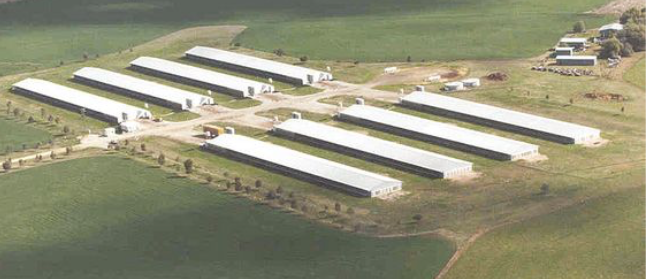
Poultry owners urged to increase biosecurity efforts
In addition to the high-pathogenic avian influenza (HPAI) case in Lincoln County, Tennessee, low-pathogenic avian influenza (LPAI) outbreaks have also been reported in Tennessee and Wisconsin.
In Tennessee, the state veterinarian on March 9 confirmed that a flock of chickens at a commercial poultry breeding operation has tested positive for low-path avian influenza.
This chicken breeding operation is located in Giles County, Tennessee. The company that operates it is a different company from the one associated with the recent detection of highly pathogenic avian influenza in Lincoln County. At this time, officials do not believe one premises sickened the other.
On March 6, routine screening tests at the Giles County premises indicated the presence of avian influenza in the flock. State and federal laboratories confirmed the existence of H7N9 LPAI in tested samples.
“This is why we test and monitor for avian influenza,” State Veterinarian Dr. Charles Hatcher said. “When routine testing showed a problem at this facility, the operators immediately took action and notified our lab. That fast response is critical to stopping the spread of this virus.”
As a precaution, the affected flock was depopulated and has been buried. The premises are under quarantine. Domesticated poultry within a 10-kilometer (6.2 mile) radius of the site are also under quarantine and are being tested and monitored for illness. To date, all additional samples have tested negative for avian influenza and no other flocks within the area have shown signs of illness.
Officials with the Tennessee Department of Health and Tennessee Department of Agriculture are working together to monitor the health of individuals who are working on either premises or had contact with affected birds. The plan for the control of avian influenza includes coordination of local, county, state and federal resources and response, and protocols for quarantine, testing, disposal, cleaning, disinfection and monitoring.
Meanwhile, animal health officials with the Wisconsin Department of Agriculture, Trade and Consumer Protection report that a low-pathogenic (H5) strain was also found in a commercial turkey flock in a Jennie-O Turkey Store operation in Barron, Wisconsin.
The U.S. Department of Agriculture posted notice of the Barron County case to the Paris-based World Organization for Animal Health’s website on Tuesday. Hormel Foods, which owns Willmar-based Jennie-O, confirmed the H5N2 strain was detected March 4 at its Barron operation.
Wisconsin officials urge all poultry owners, regardless of size, to increase biosecurity efforts now that two strains of avian influenza have been found in the Mississippi Flyway. “It’s in a poultry owner’s best interest to take precautions now to minimize the effect that avian influenza will have on their flock,” said Dr. Darlene Konkle, Wisconsin’s Assistant State Veterinarian.
The H5N2 strain found in Wisconsin is not related to the H7 high-path strain found in Tennessee. High-path strains are often fatal for birds, but the low-path strain found in Wisconsin is not uncommon in poultry flocks and tends to cause few, if any, clinical signs of illness in the birds.
“Low-path avian influenza is similar in severity to the common cold in humans and will eventually clear from the flock without bird loss,” Konkle said.
Konkle recommends the following six steps for protecting birds from HPAI:
– Keep your distance—Restrict access to your property and keep your birds away from other birds.
– Keep it clean—Wash your hands thoroughly before and after working with your birds. Clean and disinfect equipment.
– Don’t haul disease home—Buy birds from reputable sources and keep new birds separated for at least 30 days.
– Don’t borrow disease—Do not share equipment or supplies with neighbors or other bird owners. If you must borrow, disinfect it first.
– Know the warning signs—Early detection can help prevent the spread of the disease. Check your birds frequently. If you find a sick or dead bird, don’t touch it.
– Report sick birds—Don’t wait. If your birds are sick or dying at an abnormal rate, call DATCP at 1-800-572-8981. If you notice dead wild birds, call the DNR’s hotline at 1-800-433-1610.
In a similar vein, Tennessee is encouraging owners of commercial and backyard poultry flocks to closely observe their birds.
– Report a sudden increase in the number of sick birds or bird deaths to the state veterinarian’s office at 615- 837-5120 and/or USDA at 1-866-536-7593.
– Prevent contact with wild birds.
– Practice good biosecurity with your poultry.
– Enroll in the National Poultry Improvement Plan.
– Follow Tennessee’s avian influenza updates and access resources for producers and consumers.
More information about avian influenza is available from the USDA-APHIS at www.aphis.usda.gov.


